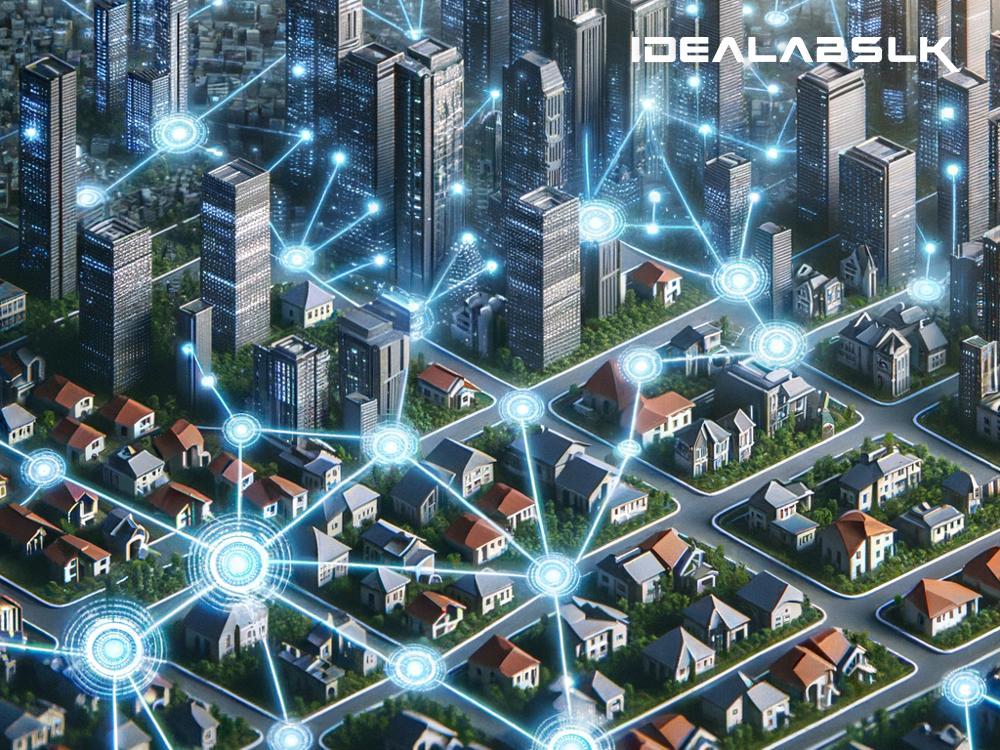Blockchain and Real Estate: Simplifying Property Purchases
Real estate, the age-old industry characterized by traditional methods and lengthy processes, is on the brink of a significant transformation. Thanks to blockchain technology, the way we buy and sell properties is set to become simpler, faster, and more transparent. If you've been puzzled by the buzz around blockchain and real estate, let’s break it down in simple English.
What is Blockchain?
Imagine a digital ledger that's not controlled by any single entity but is instead shared across multiple computers. This ledger records transactions in a way that makes them nearly impossible to alter, ensuring a level of security and trustworthiness that's hard to beat. That's blockchain for you - a technology that's known for powering cryptocurrencies like Bitcoin but is now set to revolutionize various industries, including real estate.
The Traditional Real Estate Purchase Process
Buying a property traditionally involves multiple steps and participants – from agents, lawyers, and banks to local government authorities for registrations. It's paperwork-heavy and requires a lot of time and trust in the parties involved. Errors or fraud in any step can lead to costly delays or losses.
How Blockchain Changes the Game
Blockchain introduces a new way of handling the purchase process that could remove many of these hassles. Here’s how:
1. Smart Contracts
One of the most exciting aspects of blockchain is the concept of "smart contracts." These are self-executing contracts with the terms of the agreement directly written into lines of code. In the context of real estate, once a buyer and seller agree on a price, a smart contract can automatically process payments and transfer property titles without needing intermediaries. This not only speeds up the transaction but also reduces the potential for fraud.
2. Tokenization
Imagine owning a piece of property the way you own stocks in a company. Blockchain allows for something called "tokenization" – converting the value of real estate into digital tokens that can be bought, sold, or traded. This could make real estate investments more accessible and liquid, allowing for partial ownerships in properties and potentially broadening the investor base.
3. Transparency and Security
With every transaction being recorded on a blockchain, the history of a property becomes fully transparent and immutable. This means anyone can verify the authenticity of property titles, past transactions, and ownership records without doubt. Such transparency significantly reduces the risk of title fraud, which is a common issue in many regions.
4. Efficiency and Cost Reduction
By automating the transaction process and eliminating the need for numerous intermediaries, blockchain can make the purchase process much faster and less expensive. For instance, the costs associated with traditional title searches, legal fees, and brokerage fees could be dramatically reduced or even eradicated.
Real-World Implications and Challenges
While the potential of blockchain in real estate is immense, it's not without its challenges. Regulatory hurdles, the digital divide between tech-savvy and traditional players in the market, and the need for a widespread shift in mindset are among the main obstacles to its adoption. However, several startups and established companies are already exploring blockchain solutions for real estate, signaling the beginning of what could be a major industry overhaul.
The Future is Here
Imagine a future where buying a home is as straightforward as making an online purchase. A future where the risk of fraud in real estate transactions is almost nil, and investment in property is accessible to many more people. This is not a distant dream but a rapidly approaching reality with blockchain technology. As we move forward, we can expect to see more innovations and applications of blockchain in real estate, reshaping this age-old industry for the better.
In Conclusion
Blockchain's promises of transparency, security, and efficiency could transform the real estate purchase process into something much simpler and more accessible. While there are hurdles to overcome, the strides being made towards integrating blockchain into real estate are promising. The journey from traditional, cumbersome processes to streamlined, automated transactions signifies not just a technological evolution but a leap towards making property ownership more achievable and equitable for people worldwide. As we stand on the brink of this new era, it's clear that blockchain in real estate is not just a fad but a fundamental shift that's here to stay.

